Welcome to another issue of The Newport Cornucopia where we dig through the newspapers archives for interesting news articles and adverts. All articles are posted verbatim and most headlines are original (headlines in quotes are my own).

Newport History Social
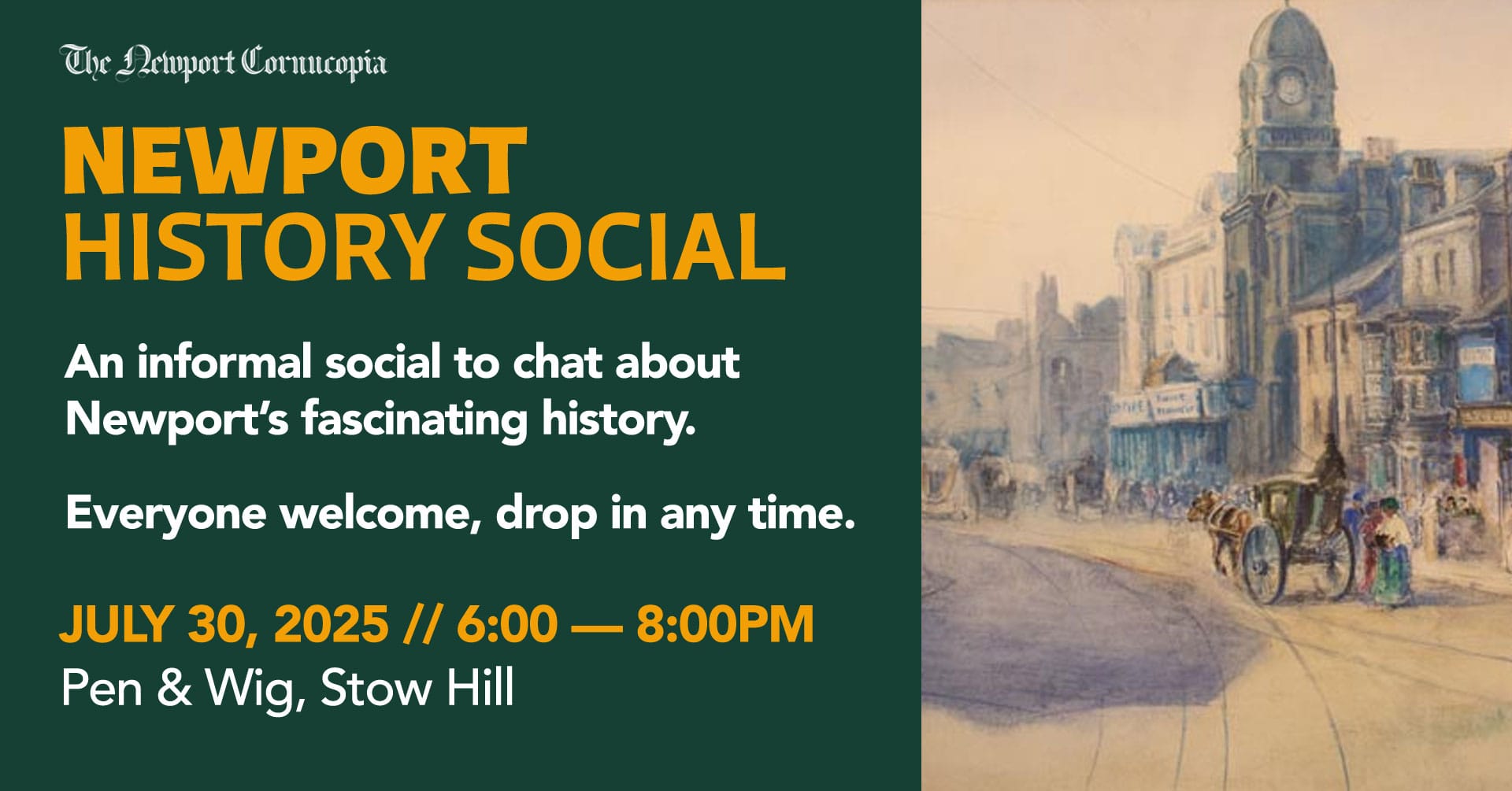
After the success of our first Newport History Social, we're holding a second one on July 30th at the Pen & Wig. Like the first one, this is open to anyone and there's no requirement to be a history buff.
The socials are laid-back open conversations where people discuss all sorts of topics and you can drop in/leave when you want.
For this social we're encouraging people to bring something Newport related, whatever that may be, that we can use as talking points.
Hope to see you there!

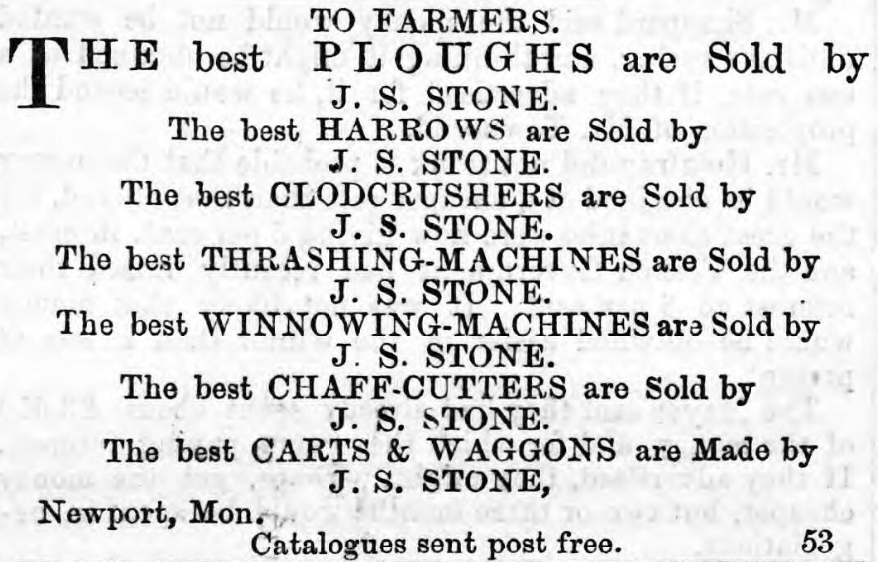

'A Survey of all Urinals in Newport in 1868'
Surveyor's Report on Public Urinals
GENTLEMEN — In accordance with your instructions, I submit herewith particulars of all the existing public urinals in the borough, with suggestions for additional ones, the positions of the whole of them being shown on the accompanying plan.
The existing urinals (exclusive of the late one at the Salutation are seven in number, and are as follow:-
A double one in Mill street, near the South Wales Railway bridge, at Castle Precincts
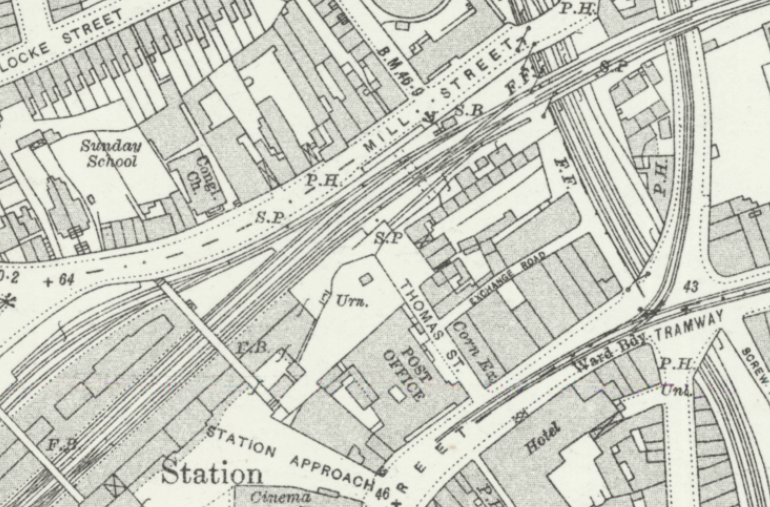
A single one in Old Green
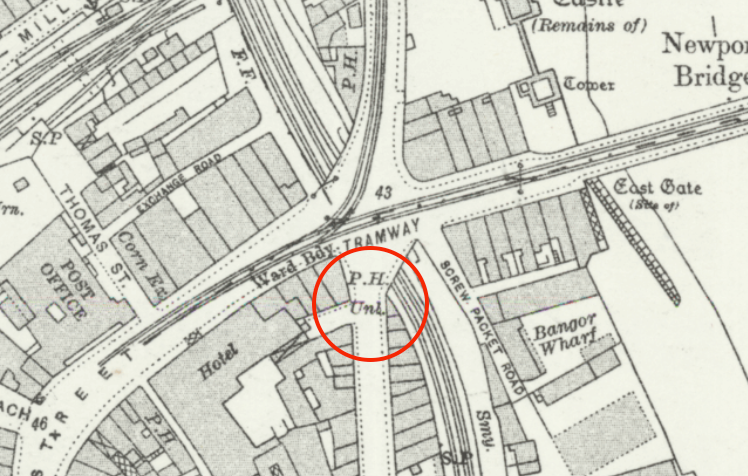
A single one in Carpenter's Arms lane, a double one in Market-street, near the market and a double one in Griffin street, also near the market
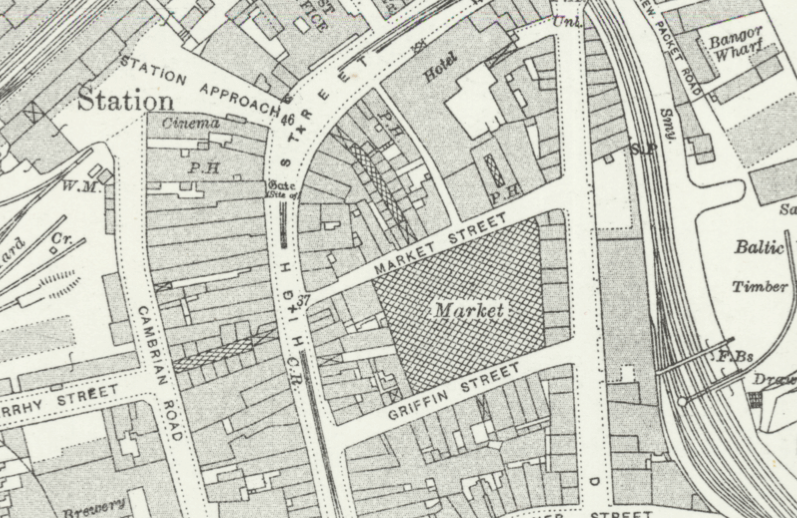
A double one in George-street, near Dock-street
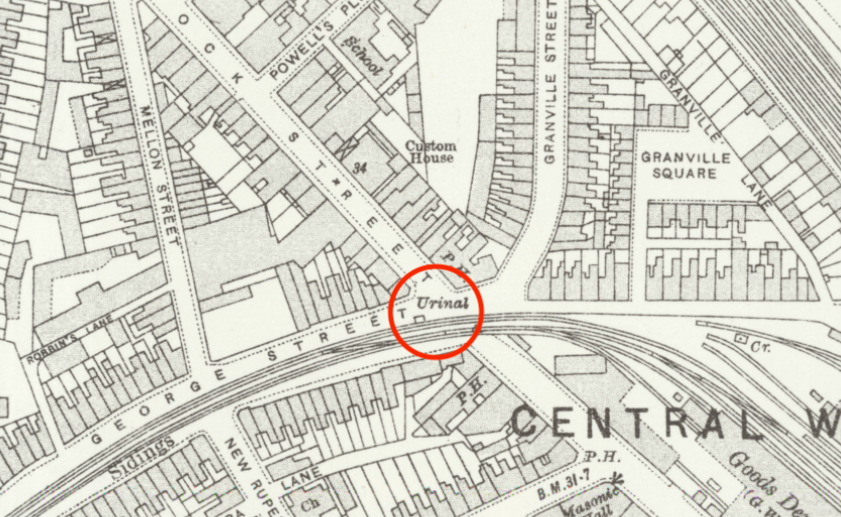
A double one at Pillgwenlly, near the Well and the Fill.
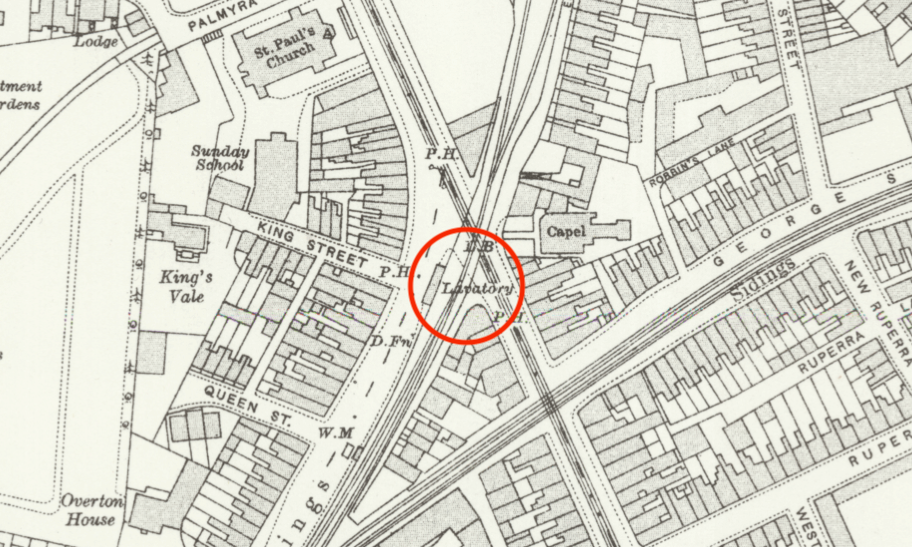
The whole of them are at present in good order and condition, being properly supplied with water (at a total cost of £11 per annum and cleansed and flushed out every morning by one of your own scavenging labourers.
There was also a large urinal for four persons on Cardiff Road, near the Salutation, which was, until recently, well supplied with water and kept clean, but it was ordered to be removed at the last Quarterly Meeting, from the east to the west side of the Salutation Well.

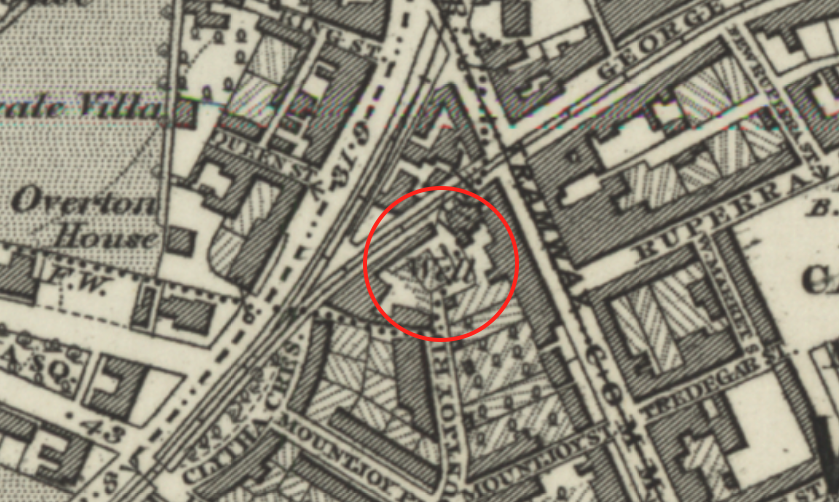
A new drain was accordingly put into the Cardiff Road Sewer, and on Saturday last, the urinal was taken down with the intention of re-erecting it on the new site. When taken to pieces, the urinal having been in use for very many years, some of the slates were found to be cracked and broken, and the remainder were so shaky as to be unfit for re-erection in such a conspicuous position. I therefore submit for your consideration the propriety of putting up a new and different sort of public convenience at that place, some of the old slates being elsewhere utilised as hereinafter proposed.
All the urinals throughout he town at present are of slate, but as cast iron has of late years been much used in different towns for this purpose, I would recommend that a trial be made of the latter kind here, the patterns being more ornamental and sightly than, from the nature of the material, can be the case with slate.
As there is a great want of out door closet accommodation in Newport, it may be well to consider whether there should not be provided at the Salutation closets as well as urinals, of the description designed and patented by Messrs. Walter Macfarlane and Co of Glasgow, whose pattern and price book is herewith submitted. The cost of two water closets and three urinals with an ornamental screen, would be about £45 complete.
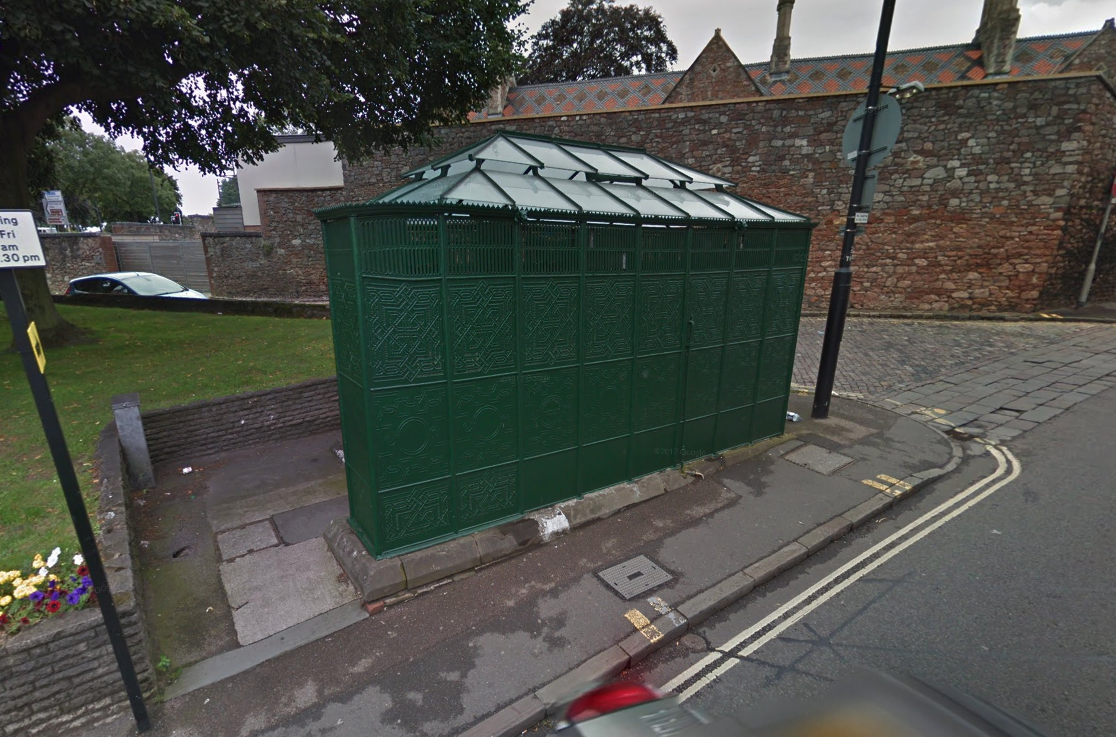
At the lower end of Dock-street, between the foot bridge and the level crossing, a new cast iron urinal for three persons might be fitted up, if so desired, at a cost of about £30. There are three other localities in the town where, in my opinion, public urinals might with great advantage to public decency be provided, and where, although there is no actual available piece of roadway or public ground for the purpose, arrangements might, I believe, be made with the owner or lessees of premises for the use of a small piece of private property at a nominal rent, on the understanding that if the ground were hereafter required for building or other purposes, the urinals should be removed.
The places in question are Skinner-street, near the lane to the foundry, at the back of Mr. Newman's premises; Dock-street, east side, at the corner of Jayne's Buildings, in an angle of the yard occupied by Mr. A. James; and in Clarence place, at the north-east corner of Newport Bridge. In each of these three places a single urinal could be provided at a cost of about £12, either in cast iron or slate (some of the old material from he Salutation being used in the latter case at a slight reduction in the cost). The want of public conveniences at these places is at present the cause of frequent complaints, both on the part of the public and of the at joining occupiers.
If the whole of these suggestions be carried out the town would be hereafter well supplied with public accommodation at a cost for erection of about £111, and at an extra cost for maintenance of probably £6 per annum for water, and £10 for labour.
— CONYERS KIRBY
A new iron urinal was ordered to be placed at the Salutation, and the report was then referred to the Public Works' Committee.
— Monmouthshire Merlin, 22nd August 1868






A Midnight Brawl at Maindee
Mary Waters and William Brown were charged with assaulting Maria Warren, on the 19th of September. Mr. J. Cathcart appeared for the defendants.
Complainant is the wife of William Warren, living at Maindee. Mrs. Waters is the landlady of the George, at Maindee; Brown lodges there. At half-past eleven o'clock on the above night, complainant went to the George to seek her lodger.
She kicked at the door, and Mrs. Waters came to the door, to whom she said, "Is John here?" Mrs. Waters said, "No." Complainant then said, "I wish to see," and Mrs. Waters said, "You sha'nt come in." Complainant tried to push in, and then Mrs. Waters struck her on the nose. Complainant retreated into the middle of the road, followed by the landlady, who struck her again, and she returned the blow. Brown then came out and slid he would hit her jaw in with that he kicked her, and she fell to the ground.
In cross-examination, she said her husband was not at home that night. She went for the lodger as she wished to go to bed. She would leave the lodger to say what part of the house he sleeps in. Works hard at the wash-tub, and takes beer, but was not drunk that night. Her husband has left her, but John is only a lodger. Had heard that John was charged with an assault, on a subsequent night. Denied having broken into the George. Heard Mrs. Waters say there was a window broken. Was sent for next day, but did not express her regret at having broken the window, nor did she promise to pay for it. A bill of 15s. was produced.
Thomas Thomas, carpenter, Maindee, heard a noise on the night in question and went out, when he saw two women (complainant and defendant) fighting; the complainant was on the ground, and John Davies, the lodger, took her up and led her home.
In answer to the charge as against the male defendant, Mr. Waters was examined. Hearing a disturbance at the door, he went out and saw the complainant standing near the window, and Brown put his arm to prevent her doing further damage. Complainant was helplessly drunk, and she fell on the pathway, not from a blow, but from her helpless state. When Brown put his arm out she staggered and fell. He shut the door and left her lying.
On the Saturday morning, complainant said she was very sorry for what she had done and would pay for the damage. She also said she was sorry, as she did not know what she was doing when she was under the influence of beer.
William Morris, a coachman, said that he was at the George on the night referred to, and stated that the complainant struck Mrs. Waters first and then pulled her down into the road. Warren was very tipsy, and she said she would break all the windows in the house if she was not permitted to go in to seek her husband. The Bench dismissed the case, as the evidence was conflicting.
— Monmouthshire Merlin, 4th October, 1856
Riot at Pillgwenlly
Jesse Macarthy and John Macarthy were charged with being drunk on Saturday night last, at King's-parade. Sergeant Wilcox said there was a great disturbance at King's-parade, which lasted some hours. The defendants were among the persons present, and John, with others, rescued Jesse from the hands of the police. The riot was general, and the prisoners and others beat off the police with stones.
P.C. Ford went to the assistance of Sergeant Wilcox, in consequence of his being ill-used by Jesse, and after they tock him into custody, John and others came and rescued him. The defendants were taken into custody on Sunday night. Fined 10s. each, including costs, or 14 days' imprisonment.
— Monmouthshire Merlin, 4th October, 1856
'Taken Home in a Wheelbarrow'
Hannah Hazell, a middle aged married woman, was summoned for being drunk at Undy, on Christmas Day. P.C. Ferris stated that he found the defendant on the road so incapably drunk that he had to take her home in a wheelbarrow.

Defendant: That was a Christmas treat. But I was not drunk, I am not right in my head.
Mr. Cordes: You will be fined 5s.
Defendant: Thank you, gentlemen. You are very good—thank you kindly. I'll pay you in a week. I hope God will be with you all.
— Monmouthshire Merlin, 6th January, 1882

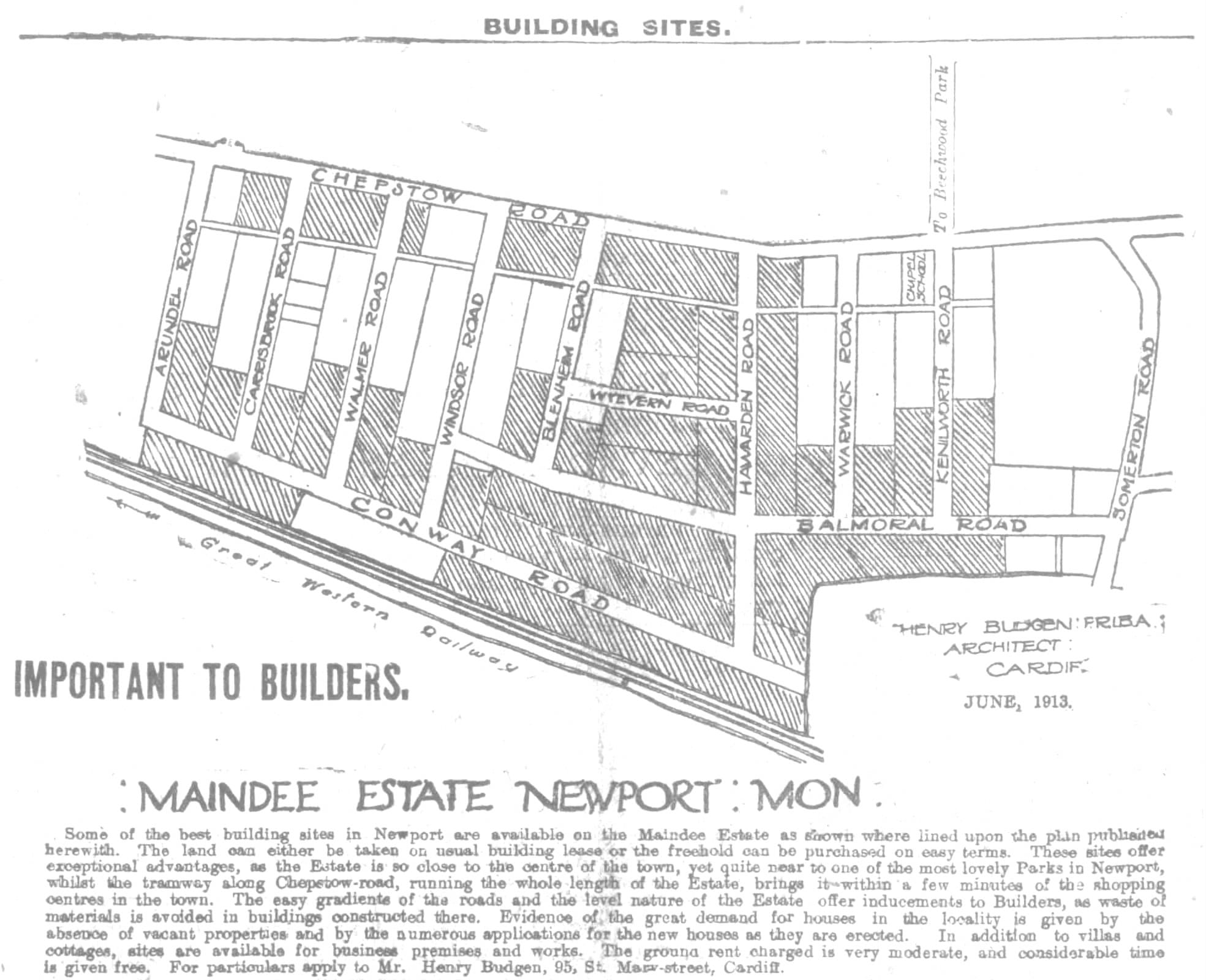

'4 Months Hard Labour for Stealing Cloth'

Mary Connor was charged with stealing a quantity of cloth, belonging to a cattle dealer, named Stone. On the 17th April, prosecutor gave the cloth to prisoner's husband, to be made up into trousers and waistcoat.
Jacob Druiff said on the 17th April prisoner pledged the cloth with him for 2s. P.C. James Evans produced the cloth, and spoke to apprehending the prisoner, who, he said, admitted that she pledged the cloth. The prisoner was then charged with stealing a piece of fustian, the property of John Wood.
This case was also proved, and the prisoner having elected to be tried by the Bench, was sentenced to four months' hard labour.
— Monmouthshire Merlin, 12th May, 1871

Trotting Match
On Monday a trotting match for £30 a side took place on the Cardiff-road, between Mr. George Baker's (of Goldcliff) brown mare, and Mr. David James's (of Cardigan) chestnut mare,
both being well-known in local sporting circles as remarkably fast trotters.
The course was two miles, duly measured-from Coedkernew to Ebbw Bridge, it having been arranged for James's mare to have a start of 200 yards, on account of her being aged. She was ridden by the owner, and Mr. Thomas Price, of Goldcliff, rode Mr. Baker's mare.
Several hundreds of spectators congregated along the road, and the betting was pretty even, but in many instances seven to five was laid in favour of Mr. Baker's mare, that had in appearance a striking advantage over the aged chestnut, which seemed to be out of condition and rather scraggy. She, however, compensated in speed for her poor appearance, and won by a length or two, after a remarkably well-contested race.
— Monmouthshire Merlin, 6th January, 1882

St Woollos, 1864
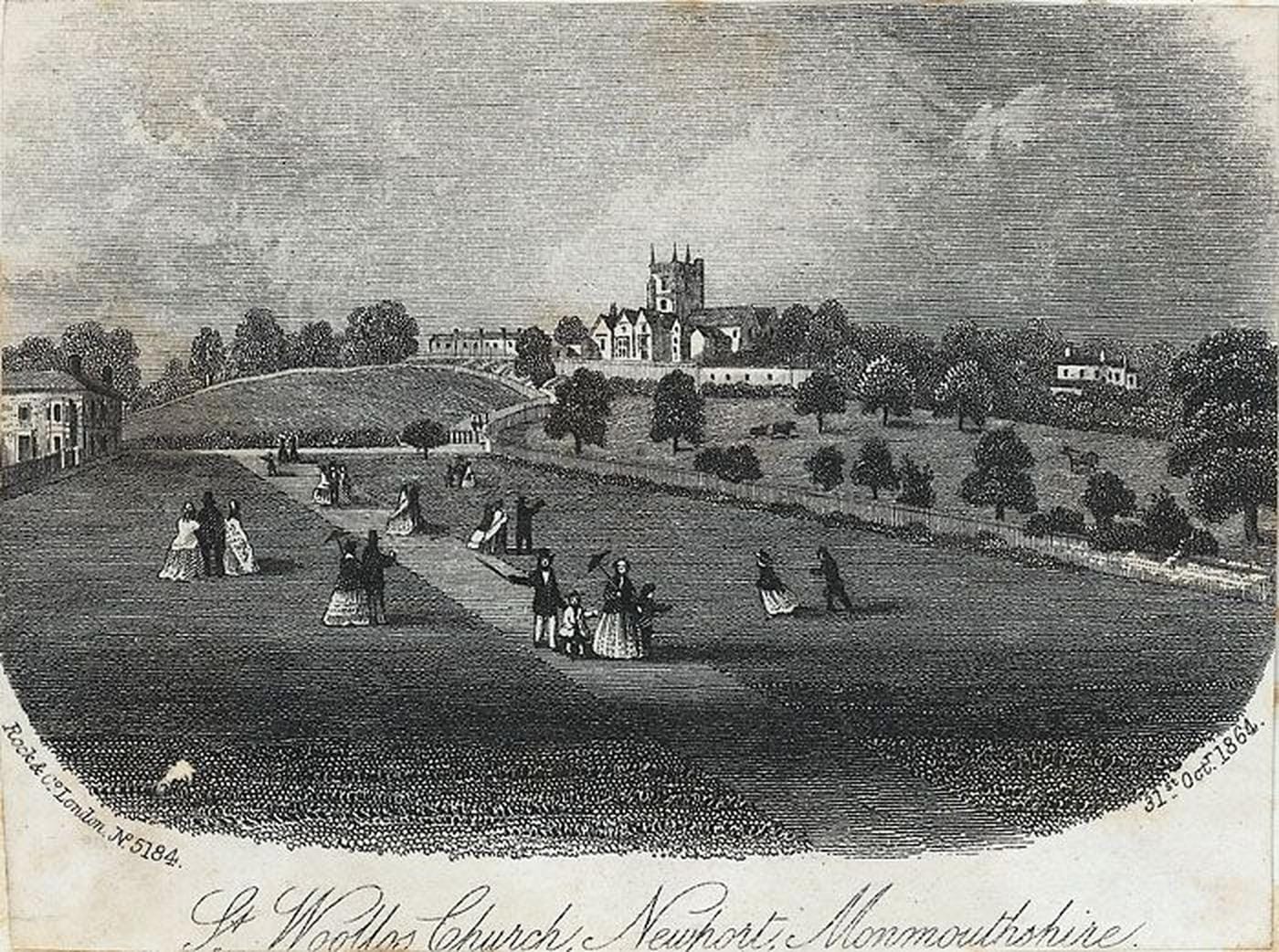
The postcard above was published by Rock & Co who printed thousands of different cards. The view looks like it could well have been taken in Kingshill house which would have been there in 1864. And I'm wondering if the house on the right is Tivoli which is still there.
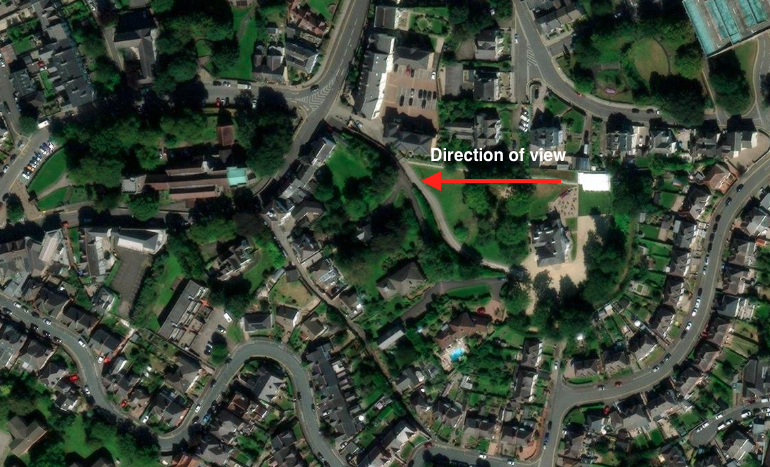

'Station Street Primitive Methodist Chapel Opens'
The opening services, begun on Christmas Day, were continued last Sunday, the preacher being the Rev. W. Jones, of Derby. The following evening the same gentleman lectured on "Hugh Latimer, his life and times." Mr. Henry Phillips, J.P., presided.
Culture, imagination, logic, historic research all were noticeable in this lecture, and it was matter for regret that so gifted a speaker should not have had a crowded congregation to address.
— Monmouthshire Merlin, 6th January, 1882
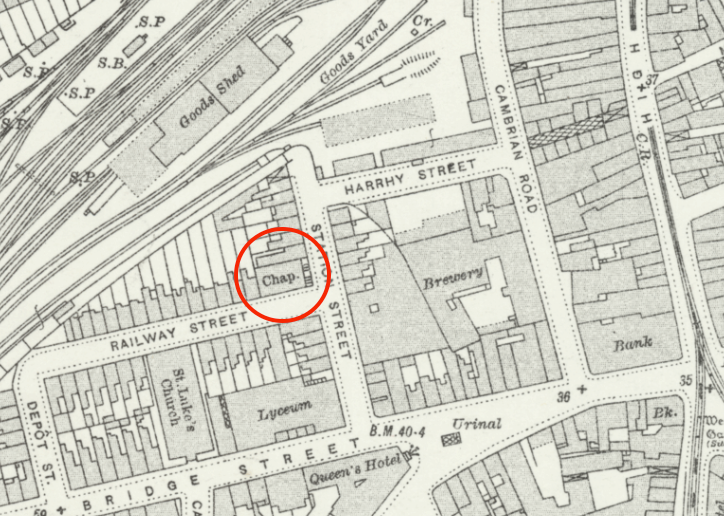
Station Street Methodist Chapel was built in 1881 to the design of architects Habershon and Fawckner of Newport. The architects were busy in Newport building three Anglican churches, least fourteen chapels and other buildings including:
- Presbyterian Church, Havelock Street (1864)
- Beechwood House, Newport (1877-88)
- The restoration of the Church of St Basil, Bassaleg (1878–9)
- Bethel Methodist Church, Stow Hill (1882–83)
- 165 Commercial Street (1886) (no longer there)
- Clytha Primary School (1900–1)
- Queen Victoria Memorial (almshouses), Stow Hill (1901–2)
Source: Wikipedia

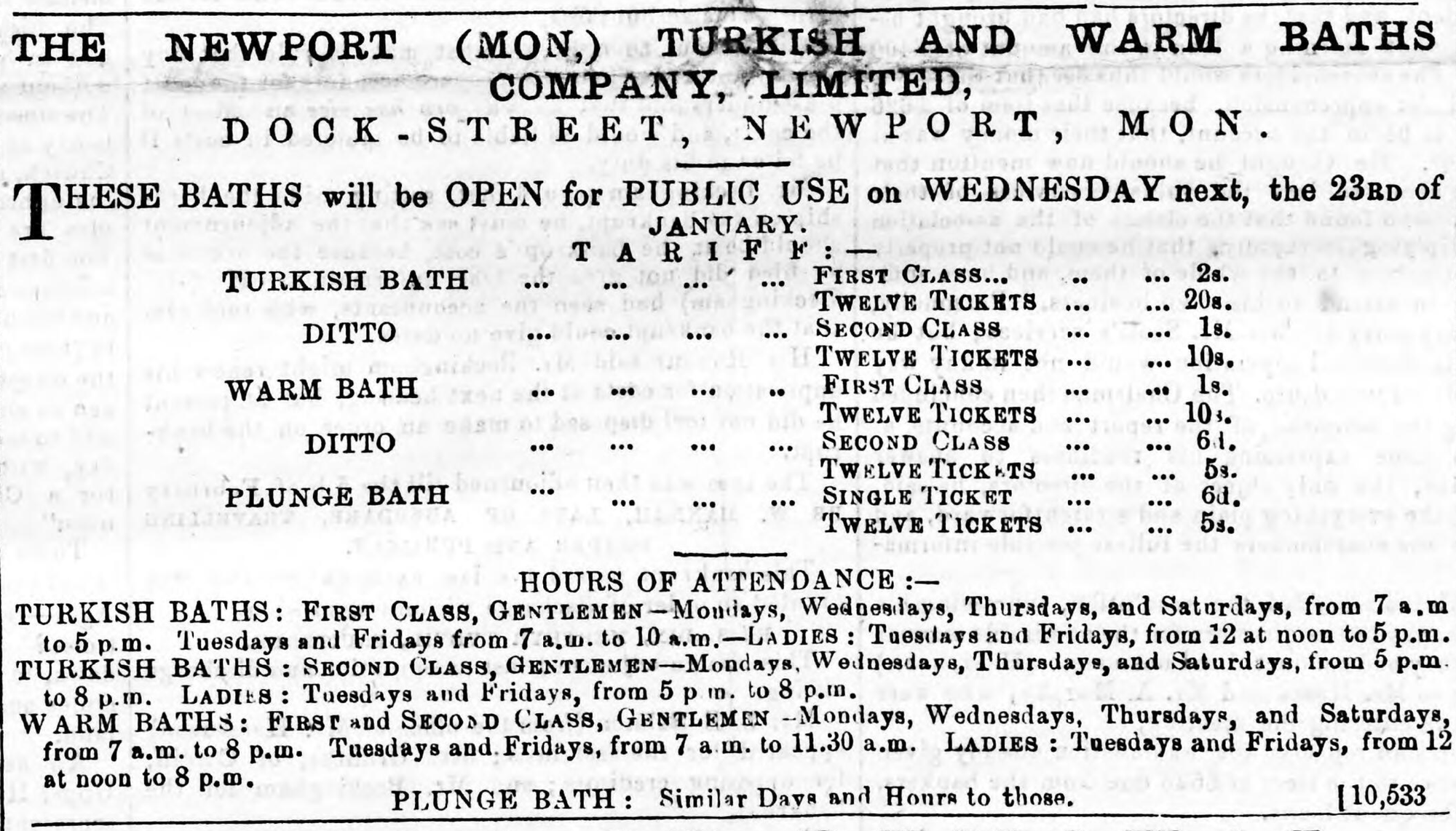

The Opening of the Victoria Assembly Rooms
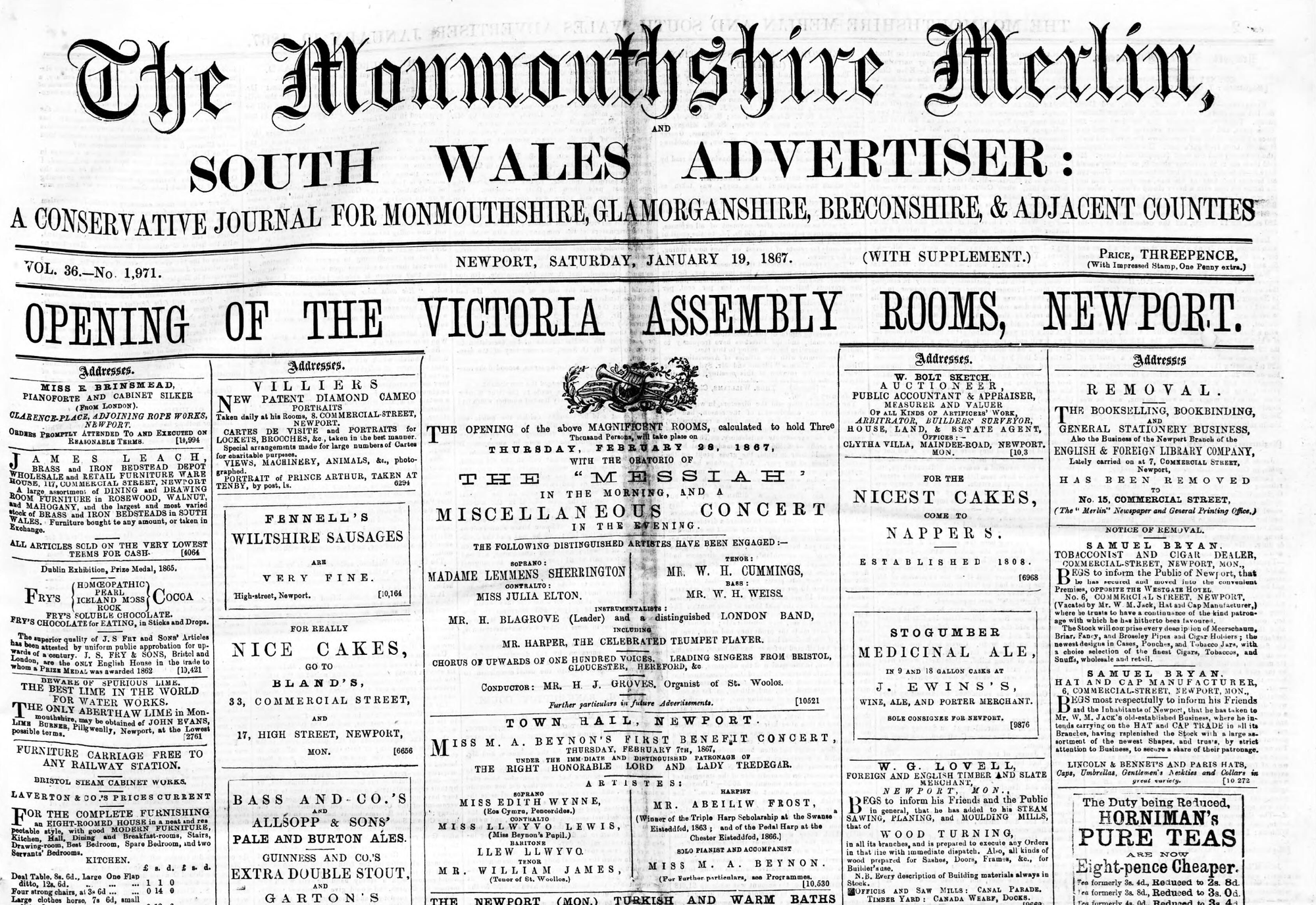

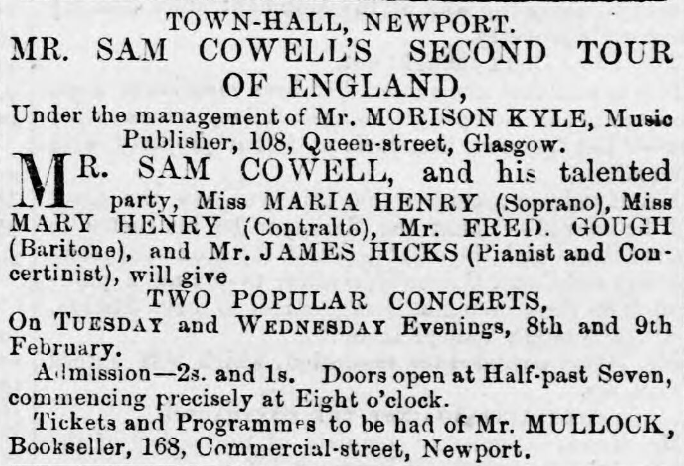
Samuel Houghton Cowell (5 April 1820 – 11 March 1864) was an actor and singer of comical songs. He was born in Blandford Forum but soon moved to the US.
Between 1857 and 1859 he toured throughout England with a concert almost every night and was playing at Newport's Town Hall in February 1859. The tour took its toll and he turned into an alcoholic. He died a few years later of consumption in 1864.




'Houses for Sale on Stow Hill in 1820'
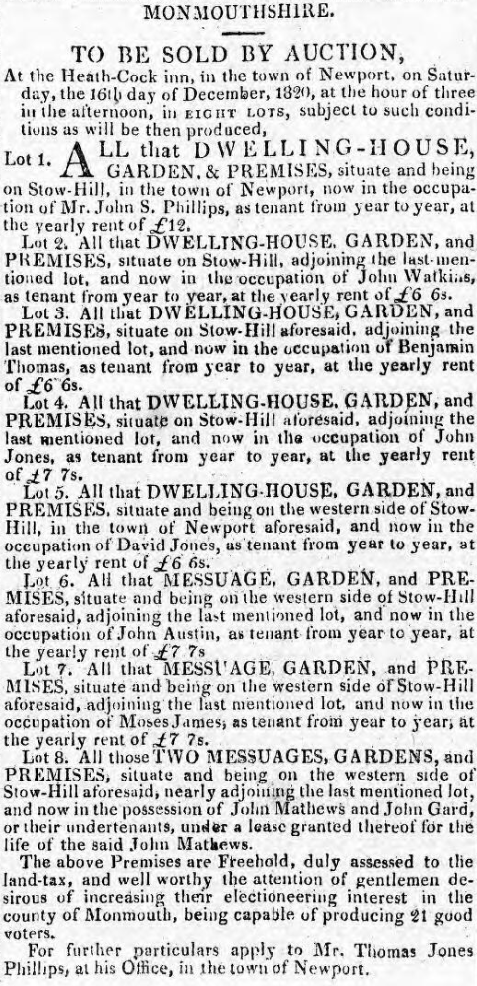

'Newport's Gas Lights of 1825'
On Friday evening, the 4th instant, the town of Newport, Monmouthshire, was partially lighted with Gas, which has likewise been introduced into most of the shops and public-houses in the streets where the pipes are laid down. The gas we are told is of very superior quality.
Our informant observes, that it is much to be regretted there are not more public lamps, especially on the Canal side, where the danger is now become greater from the effect the brilliant light the gas affords to the passenger where it is—who on quitting it immerges (sic) into darkness (rendered tenfold more visible) before he sees the next lamp. It is to be hoped that the gentlemen who form the Committee for the Canal Company, and the wealthy landlords of the extensive Wharfs, will not let a part of the town which is to them a source of so much wealth remain in darkness, while light so pure can be obtained.
That beautiful promenade up Stow-hill towards the church, and which is several feet above the level of the road, is also left in darkness,
while every chapel in the town enjoys the advantage of lamps on the Way, and near to the doors. This defect we expect to see remedied.
— The Cambrian, 12th November, 1825



'The Human Calculator of Stow Hill'
A Boy, named William Jones, whose parents reside at Newport, Monmouthshire, within these few days has been found to possess extraordinary powers of mind, or memory. He will answer almost any question. that can be put to him in the first four rules of Arithmetic, with as much facility as the once celebrated George Bidder.
He has never received any education other than at the British School in that town. He is now with Mr. Griffiths,'baker, Stow-hill. On being asked how it was he could do it, he observed that all the figures necessary to work the sum appeared to his mind as plain as on a slate or a book.— From a Correspondent.
— The Cambrian, 25th February, 1826

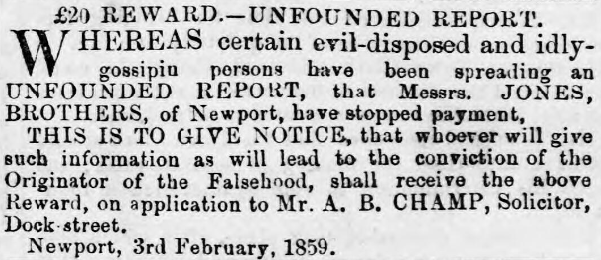

Fire at Mr Herbert Smith's Premises
Great consternation was caused on Monday afternoon, by an alarm of fire at the stores of Mr. H. A. Smith, wine, spirit, and porter merchant, Newport. The premises occupy a considerable area, extending from Stow Hill to the rear of the houses in Baneswell-square, the front portion being used as offices and warehouses for the wines and spirits, and the back comprising the bottling department and general storage for ales. Above there was a loft filled with hay and straw, and it was in the last-named that the fire was discovered by one of the workmen, about half-past five o'clock.
The fire-engine was at once despatched from the Town Hall under the superintendence of Inspector Williams (Chief Superintendent Huxtable having been called from town on business), and he was accompanied by Detective Curtis, Sergeants Bath, Wilcox, Pratten, Winmill, and a numerous body of constables, who attached the hose to several of the nearest hydrants with the least possible delay. So rapidly and fiercely, however, did the fire spread, that before the water was brought to bear, some of the roof of the back portion of the burning premises fell in, and the huge mass of flame and smoke shot high in the air. The hose was directed to several points, but the great aim was to prevent the fire spreading in the direction of the offices and spirit warehouse, where a large quantity of brandy, &c., was stored, the ignition of which must have been attended by a frightful destruction of property.

Happily the efforts employed were successful; and great praise is due both to the constables and to those of the public by whom they were assisted, for the assiduity with which they worked. The services of Mr. Crocombe, Mr. Smith's traveller, were especially valuable. At one time it seemed impossible to prevent the destruction of at least a portion of the cottages in Baneswell-square, the property of Mr. Howard, so closely contiguous were they to the line of shedding in which the fire had strongest hold.
The inmates of these dwellings removed their furniture with the utmost haste, flinging it, in some instances, from the windows. These goods were, of course, considerably damaged. Happily, the progress of the fire in this direction also was arrested while yet the houses had sustained comparatively little damage. The engine was kept at work for about two hours and a half, when the flames were subdued, and all danger of a renewed outbreak was at an end. We have been unable to ascertain the estimated amount of the damage. Mr. Smith's loss is covered by insurances in the Sun and the Guardian offices.
— Monmouthshire Merlin, 27th February, 1869


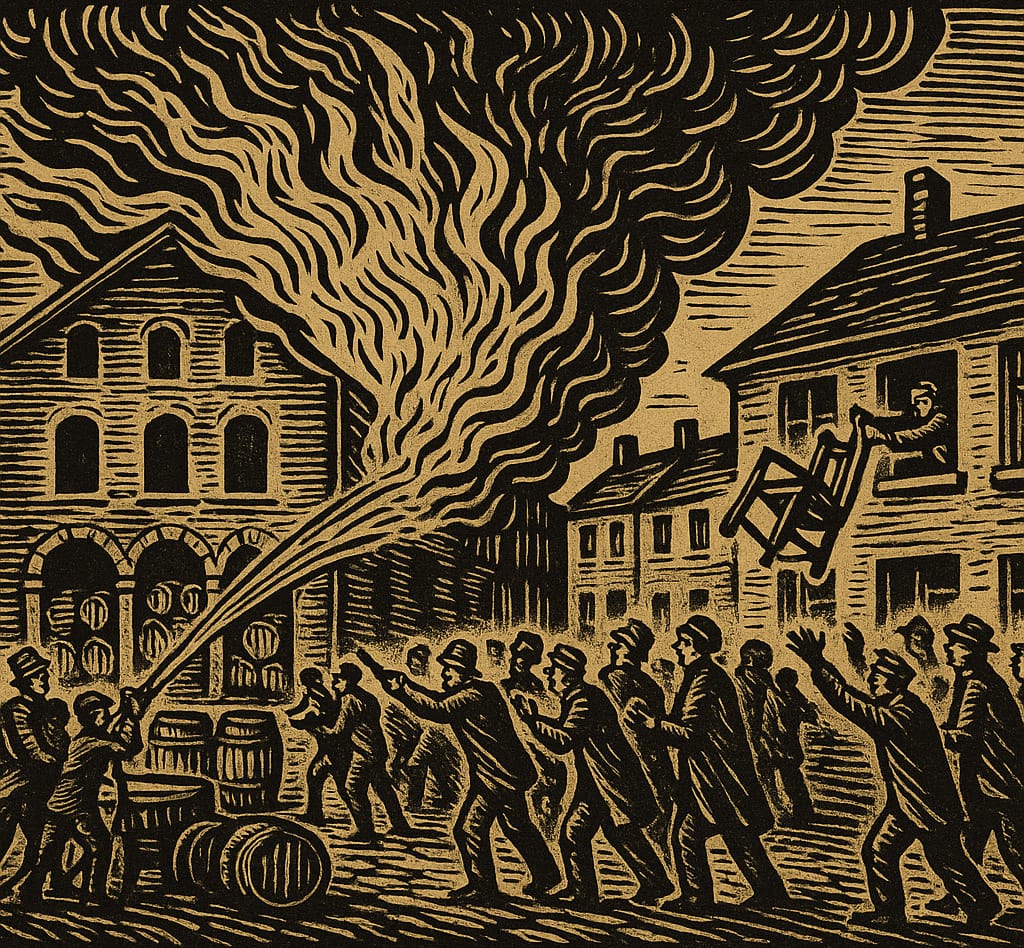
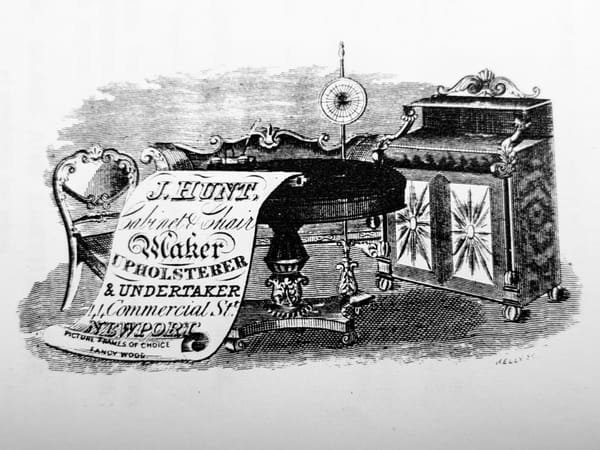
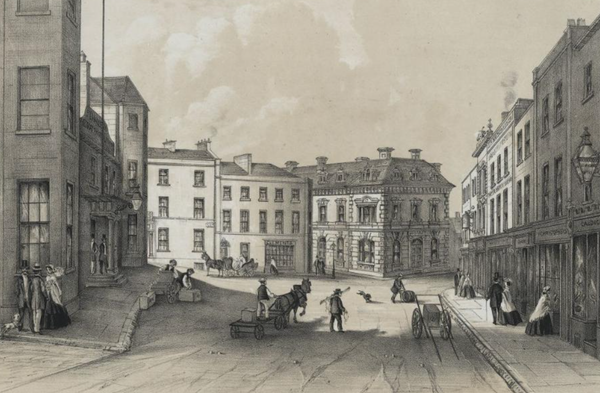
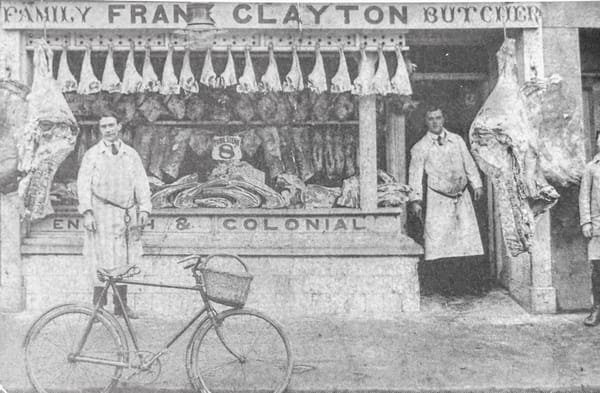
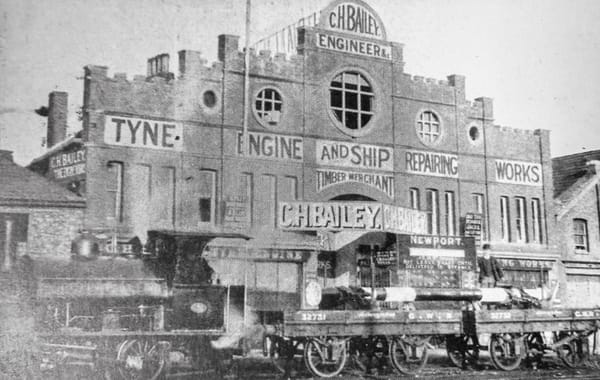

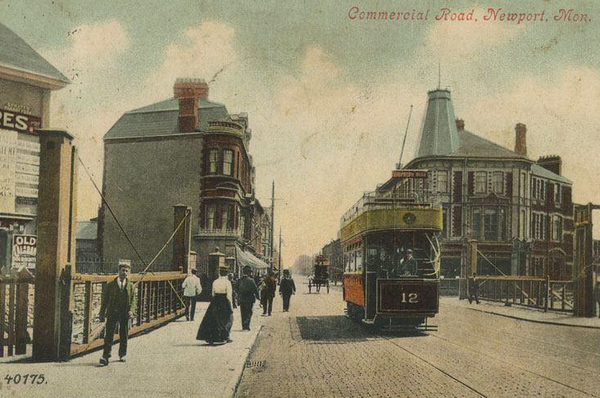
Member discussion